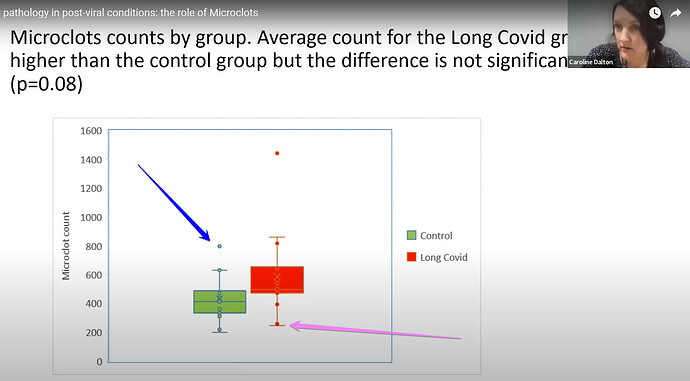According to some data from Caroline Dalton’s lab, most Long COVID patients have the same level of microclotting as normal healthy controls.
“There’s quite a bit of overlap”
- Caroline Dalton
I’ve added blue and purple arrows to the diagram below to show the healthy control with the highest microclotting level and the Long COVID patient with the least microclotting.
What this means:
- As a test, it’s far from perfect.
- This suggests that microclots by themselves are not the cause of Long COVID symptoms. We know that LC symptoms aren’t appearing in healthy controls, acute COVID patients, and Type 2 diabetes.
The last slide of her presentation summarizes the findings:
Her full talk can be found here, alongside Resia Pretorius:


